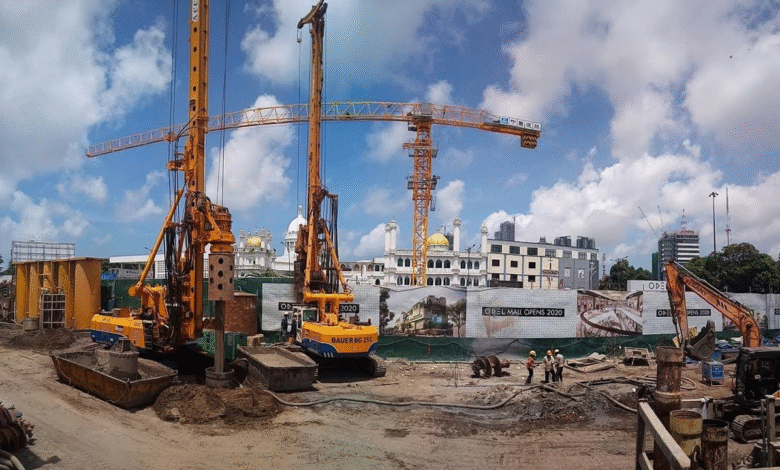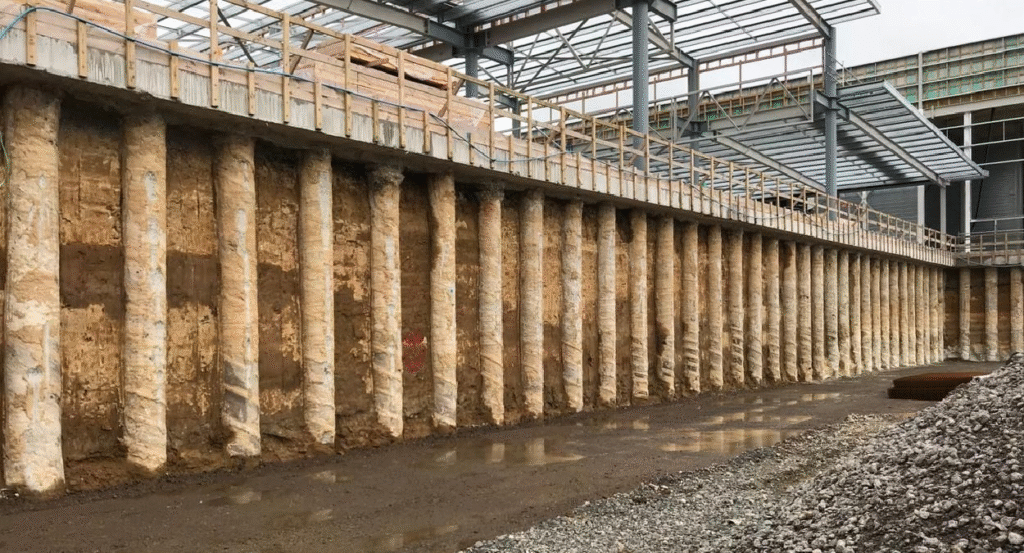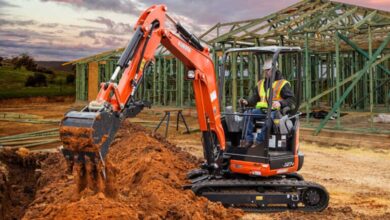Why Is Groundwork Planning So Important in Commercial Construction?

In commercial construction, where structures are large and carry more weight, a strong foundation is crucial to make any building last longer. It supports everything above it, from walls to machinery and helps distribute the load evenly. Additionally, it also protects your property from water damage and collapsing issues, especially during harsh weather.
When talking about a strong base or foundation, the role of groundwork planning can’t be overlooked. It involves tasks like clearing the site, digging trenches, studying the soil, and deciding how the foundations, drainage, and utility lines will be set up. It is especially important for areas like Hampshire, where the soil is weak or ground conditions are complicated.
Importance of Groundwork Planning for a Commercial Construction Project
Supports the Whole Structure
A strong base or foundation is crucial to make any building stronger and last longer. Without solid groundwork, the building may shift, crack, or become unsafe over time. Therefore, proper planning is necessary to identify the right depth and method for foundations.
For example, trusted piling contractors in Hampshire often carry out soil testing to decide the best piling method. It keeps the structure safe, stable, and able to handle heavy loads for many years.
Identify and Solve Soil Problems in Early
Groundwork planning includes checking the soil condition before starting construction. Some soils are too soft, wet, or loose to support large buildings. If these issues are not found early, the foundation may sink or shift later. So, advance planning helps spot these risks so they can be fixed with piling, soil replacement, or drainage systems, saving both time and money. It also helps prevent delays later in the project.
Ensures Proper Drainage Setup
Water build-up can damage foundations and create unsafe conditions. Groundwork planning helps set up proper drainage to keep water away from the building. It prevents flooding, damp walls, and erosion around the base. Moreover, early planning allows builders to place drainage pipes, soakaways, and channels in the right spots, protecting the building and reducing maintenance costs in the future.
Accurate Project Scheduling
Efficient groundwork planning helps the entire construction process stay on schedule. When you know what’s beneath the surface, you can plan ahead and avoid last-minute surprises. This includes checking for buried services, setting clear foundation lines, and allowing enough time for excavation and site prep. Additionally, it also ensures that materials and workers are ready, reducing wasted time waiting for machines, permits, or fixes.

Avoids Damage to Underground Utilities
Before digging, it’s important to find out where pipes, cables, and other underground services are located. If you hit a water pipe or electric cable, it can stop work, cause danger, and lead to large repair bills. Groundwork planning helps map out these utilities so they are not damaged during construction, keeping everyone safe and avoiding unexpected costs. It also ensures legal rules are followed when working near public lines.
Meet Building Regulations
In commercial construction, safety and legal checks are very strict. Poor planning could lead to costly changes or fines later. Moreover, if the groundwork does not meet these standards, the whole project may be delayed or even stopped. Planning ahead helps make sure all legal steps are followed, such as getting permission for excavation or drainage. It helps you make sure the work is approved and trusted by inspectors.
Right Machinery and Materials
In commercial projects, larger machinery is often needed, so the site must be prepared for that access. Every site is different, and groundwork planning helps decide what tools, machines, and materials are needed. For example, a site with rocky soil may need strong drilling rigs, while soft ground may require different piling methods.
Prepares the Site for Heavy Loads and Traffic
Commercial buildings often deal with large amounts of weight, from heavy machinery to constant foot traffic. Groundwork planning makes sure the land can take that pressure without sinking or cracking. It includes setting the correct base level, adding support layers, and using the right type of concrete or piling. Without this step, the surface could weaken, leading to future repairs or safety risks.
Reduces Costly Mistakes and Delays
Unexpected issues like bad soil, hidden pipes, or poor drainage can cause big delays and extra costs. Groundwork planning helps avoid these surprises by carefully checking everything before the build begins. It allows for better budgeting, correct material orders, and smart planning. It gives the team more control over time, money, and safety.
Enables Safe Retaining Structures
Some commercial sites need retaining walls to support deep excavations or manage sloped ground. For example, adding contiguous walls in busy areas or where space is limited can provide additional support. However, early planning, including checking the soil type, available space, and depth is crucial to install such walls properly.
Bottom Line
Groundwork planning is crucial to determine the soil type and decide which foundation method will be best to create a strong foundation. It helps detect ground issues earlier before they turn into costly or even irreparable losses, ensuring both structural integrity and safety.



